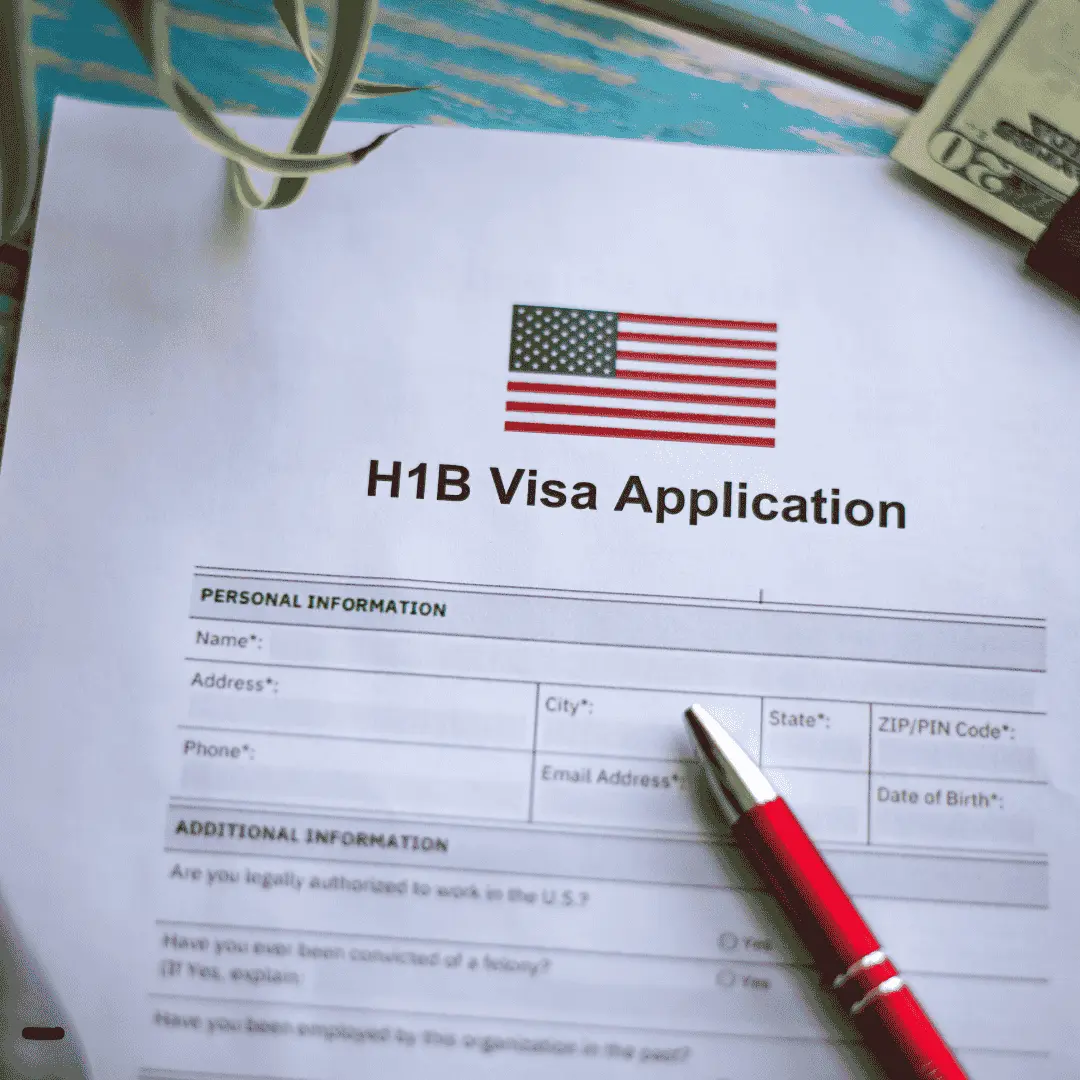Study abroad! Something that many students untiringly think, day and night. Something that most students aspire and crazily dream about. Something that is known to be super costly, complicated, and exhausting (that’s what people say about study abroad, and you can’t agree more). Above all, many don’t know where to start from and are so confused (at least you are!) If you believe in your dreams, we say educate yourself the right way and do the right things. We assure you that you’ll get there one day.
Okay. Wouldn’t it be great if we break that down for you? Yep! You asked, and we heard. We made a simplified step-by-step guide to help you study abroad, so you don’t ever have to compromise or start things hurriedly with your dreams. This article is all about these 10 steps to help you get closer to your never letting you sleep kind of dreams.
Find your right interest
Arts, medical, business, pharmacy, and so many and so on; there are literally so many options. However, it won’t be that overwhelming if you’re clear with your interests. But, if you haven’t figured that out yet, you should probably go and do that first before you begin with anything. Sit together with your friends, parents discuss, decide, and get started. This will determine what your future is going to look like. You don’t want to hurry here, because it is the crucial step of all in this guide.
Research (Do your homework, folks!)
We know you might have seen and heard it already like a thousand times (you’ll listen more), but that’s no.1. If you know someone who is already studying abroad, seek knowledge from them, not help. Note what they say and Google all that. Then pen down your preferences (like your areas of interests, where you want to study, list of universities, and more). Make use of social media and connect with alumni, and know their experience from that specific university. If you like any university, check out for eligibility, the application process, and scholarships.
Many tend to skip this step and rush into the process, which is not recommended whatsoever. After the admission, it would be too late to take any action if you don’t like anything. (unless you are ok to lose the money that you spent) If you feel this research isn’t of much help, consult an expert for a free counseling session and be clear in the first place. Getting advice from the experts might sound promising and assuring; however, your backend research is paramount to know what suits you the best. We hope you stick to it until you are confident.
1. Get an appointment
Once you choose your PERFECT university, it’s time to hop on to the opportunity. Choose an agency with a good record (fraud alert… there are literally so many fraud agencies that prey on students’ money, beware). Thumbs up if you meet the eligibility and apply.
If you want to clear the IELTS or any other exam, go ahead, prepare well and crack the exam. We have recently published an article on the top 10 IELTS books (with excellent practice papers, audio, video tracks, strategies, and more) to help you maximize your score. Be sure to check that out. All it takes is a quick read.
At times clearing these exams can be time taking and overtiring, so it’s good to clear the exam as early as possible. Get a word of advice from someone who has done the course if you need help.
There are so many online and offline agencies that offer genuine services. Again research is the key. (background check of agency in specific)

2. Letter of the offer (Review and Acceptance)
After applying for your preferred university, it may take a few weeks to get processed. This time may vary for the students essentially applying for postgraduate levels. (may take a little longer) You’ll receive the letter of the offer if you get selected. Congratulations! You are getting started and getting closer.
This offer letter originally means that you are selected, and you can proceed to the next steps. The offer letter would be two types, conditional and unconditional. Now, what do they mean? Conditional one means you are provided with provisional admission and with certain conditions. After meeting those conditions, it gets converted into an unconditional letter.
Whereas an unconditional letter means that you are already being accepted as a student, you can proceed to the fee payment process.
All through this process, the university will keep you updated. The next step is to accept the letter; before you do that, you’ll have to go through all that’s written in the letter. Go to the counselor to check all the terms and conditions.
In case your application is accepted by more than one university, your counselor will help you choose the best one.
3. Check the fees
This is one of the primary reasons why most students drop out from study abroad or don’t even sign up because they are expensive. That doesn’t mean you can’t get it down. There are funding sources for such students, but knowing how much it costs beforehand can help you get a rough figure for your comprehensive study. If you have trouble, either you can go and opt for scholarship programs or apply for a loan.
4. Seek for Scholarships Opportunities
Even the best of the best ones offer scholarship programs to aid students in their education. Be very meticulous about the eligibility and the deadline; you don’t want to miss that. Because they are so beneficial, so many get enrolled and take the full benefit of it.
Scholarship programs usually differ from one university to another. Need any help in finding the right scholarship? We help thousands of students to find their preferred scholarship program. You name the country, and we’ll provide the list. Signup today and get in touch with our experts for more information.
5. Clear the competitive exams
Now, what are these exams, and why should you give them? We talked so much about the prominence of scholarships in the above paragraph; assume this is one great way to get higher scholarships. Let’s discuss some of the popular ones out there, like IELTS, GRE, GMAT, SAT, and LSAT. If you plan to migrate and study somewhere in the US, UK, or European countries, consider these exams a must. We have given a few tests, and who can take them; look below to learn more.
GRE (The Graduate Record Examination)
It is ideal for students who want to enroll in institutions in Canada or the US. The test emphasizes analytical, verbal, and mathematical skills, which means it is perfect for students who wish to join programs like science and engineering.
GMAT
Business enthusiasts or management enthusiasts, this is for you. The average GMAT would be 570 – 580 but, aim for 700 if you want to get into a top school.
SAT
If you want admission to an American university, you need to clear the SAT (The test Scholastic Aptitude Test). The test is available in types one with Reasoning Test and second is the Subject test to prove your knowledge in the subject you chose.
MCAT and LSAT
Want to pursue medicine or LAW in the USA, you need to clear the MCAT and LSAT. MCAT is an aptitude-type test (multiple choice) for medical aspirants, whereas LMAT is for Law aspirants, and the Law School Admission Council administers it for students.
Sometimes you will have to attempt a combination of tests. For instance, for European countries, you will require to have excellent proficiency in English. Exams like IELTS, TOEFL, PTE are the gotos. You need to speak to your counselor to clarify the requirements as in the competitive exams for study abroad.

6. Applying for a Visa (The most, most, most important step!)
Once you sign the offer letter, the next immediate and obvious step is to apply for a visa. Now, every country has a different set of formalities for providing visas, so a correct counselor is a must. They help you prepare essential documents that are quintessential for fulfillment and submission. We made a small top visa documents checklist for your reference.
- Proof of enrolment in a recognized university or institution
- Residence permit application would vary by the country
- Proof of parent or guardian consent if you age below 18
- Language certification
- Copy of passport
- Passport size photos (yours)
- Vaccinations (if any meditation by any country)
7. Figure the stay
Students on-campus living or living with their parents and family won’t have much of a big problem. Students who plan to rent an apartment need to figure out soon where they want to stay. The cost of rent would definitely differ from country to country and city to city. With that also comes the extra charges like the electricity, internet, water as well the transportation. Mostly plan to stay as close to the university as possible as it would reduce your transportation charges. Don’t let your stay and expenses disturb your study.
8. Get a final confirmation from your counselor
After choosing your perfect course and fulfilling all the requirements, get a final confirmation from your academic advisor or counselor. Crosscheck if you have fulfilled everything or anything pending or anything that you should know before you reach the university.
9. Know the culture and the law of the country
This is of utmost importance, knowing at least the basic culture and the law of that particular country (we mean the rules and regulations for international students). And make sure you don’t get into any trouble. Know who you can contact to get help in worst-case scenarios.
10. Book a ticket:
Now it’s time to book a ticket to your dreams. There is no special guidance on how you can book your ticket but a few helpful guidelines. Check your university open dates like the orientation and start of classes. This is to avoid any last-minute hurries and hustles. If possible, go for an open ticket for some flexibility.
(PRO TIP: Last goodbyes and hugs)
Meet all your family, relatives, and friends and chill out because most can feel chills, and that’s normal. Enjoy your farewell, take the flight and take the full experience of your new journey because it can be so momentous for a few. Take the program’s maximum benefit and learn, you’ll meet people from different cultures and countries. Travel, make your vlogs or have a personal journal and enjoy your learning experience.
P.S Don’t forget to take lots and lots of pictures and share some of your food experiences with us. We would love to hear them.
Here are People Also Ask (PAA) :
1. What are the essential steps to prepare for studying abroad?
Answer: Preparing for studying abroad involves several key steps:
- Identifying your academic and career interests.
- Researching suitable countries and universities.
- Understanding admission requirements and application procedures.
- Preparing for standardized tests like IELTS or TOEFL.
- Arranging financial planning, including scholarships and budgeting.
- Completing visa applications and understanding immigration regulations.
- Planning for accommodation and travel arrangements.
- Familiarize yourself with the culture and language of the destination country.
- Attending pre-departure orientations.
- Ensuring health insurance and understanding healthcare facilities abroad.
2. How can I choose the right university for studying abroad?
Answer: Selecting the right university involves considering factors such as academic programs that align with your interests, university rankings, location, campus facilities, cultural environment, tuition fees, availability of scholarships, and support services for international students. It’s crucial to research and compare universities to find the best fit for your educational and personal goals.
3. What financial considerations should I keep in mind when planning to study abroad?
Answer: Financial planning for studying abroad should include estimating tuition fees, living expenses, travel costs, health insurance, and personal expenses. Exploring scholarship opportunities, grants, and part-time work options can help manage costs. Additionally, understanding currency exchange rates and setting up a local bank account are important steps to ensure financial stability while studying abroad.
4. What are the visa requirements for international students?
Answer: Visa requirements vary by country but generally include proof of university admission, financial stability, health insurance, and a valid passport. Some countries may require language proficiency test scores and medical examinations. It’s essential to consult the embassy or consulate of your chosen study destination for detailed and up-to-date visa information.
5. How can I adapt to a new culture while studying abroad?
Answer: Adapting to a new culture involves being open-minded, learning about cultural norms and values, participating in local events, and building relationships with both local and international students. Developing language skills, if necessary, and seeking support from university services can also facilitate cultural adjustment and enhance your overall experience abroad.
For a comprehensive guide on studying abroad, visit University Hub.




